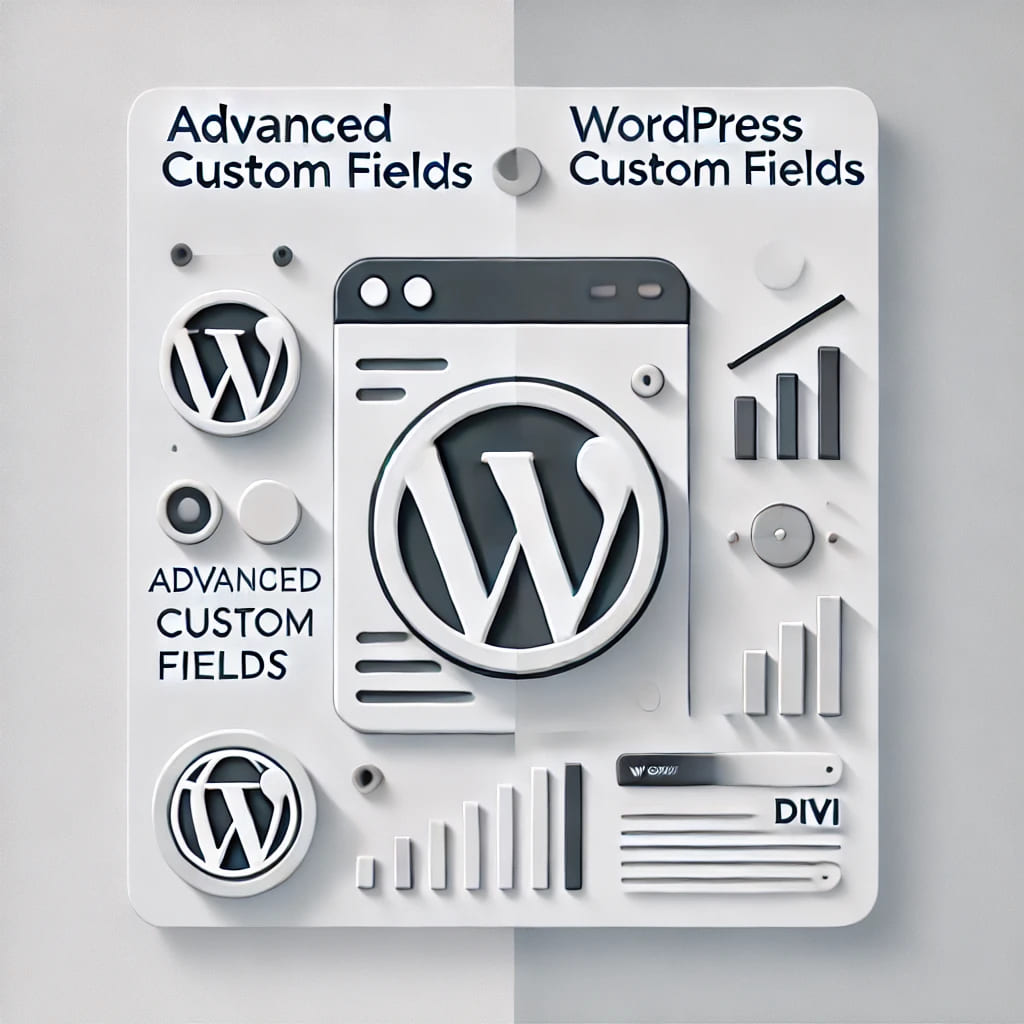Introduction
As a small business owner, your website is often the first impression you make on potential customers. Therefore, choosing the right technology stack for your website is crucial. WordPress, a leading Content Management System (CMS), offers various ways to build and customize your site. Two popular approaches are using Advanced Custom Fields (ACF) or using a page builder like Divi.
In this article, we’ll delve into the differences between these two approaches, their pros and cons, and scenarios where one might be more suitable than the other. Our aim is to provide you with the information you need to make an informed decision for your business.
Table of Comparison
| Feature/Aspect | WordPress with ACF | WordPress with Divi |
| Customizability | High | Moderate to High |
| Learning Curve | Moderate | Low |
| Performance | Excellent | Good |
| Flexibility | High | Moderate |
| Cost | Moderate | Moderate to High |
| SEO-Friendliness | Excellent | Good |
| Maintenance | Moderate | Low |
| Scalability | High | Moderate |
Customizability
WordPress with ACF
- Pros: ACF allows for a high degree of customization. You can create custom fields for posts, users, terms, and more. This enables you to build a website that fits your specific needs.
- Cons: The high level of customization may require a deeper understanding of WordPress and PHP, which could be a barrier for some users.
WordPress with Divi
- Pros: Divi offers a range of pre-built modules and layouts, making it easier to set up a website quickly.
- Cons: While Divi is customizable to an extent, it may not offer the same level of granular control as ACF.
Learning Curve
WordPress with ACF
- Pros: Once you understand the basics, ACF is straightforward to use.
- Cons: A moderate learning curve exists, especially for those unfamiliar with custom fields and PHP.
WordPress with Divi
- Pros: Divi is user-friendly and designed for those who may not have a technical background.
- Cons: Advanced users may find the platform limiting if they wish to perform more complex customizations.
Peformance
WordPress with ACF
- Pros: ACF is lightweight and optimized for speed, which is beneficial for SEO and user experience.
- Cons: Poorly configured custom fields can potentially slow down your website.
WordPress with Divi
- Pros: Divi is well-coded and performs reasonably well.
- Cons: Some users report slower load times due to the additional JavaScript and CSS files.
Flexibility
WordPress with ACF
- Pros: ACF is highly flexible, allowing you to build complex layouts and functionalities.
- Cons: The flexibility comes at the cost of complexity.
WordPress with Divi
- Pros: Divi is flexible within the constraints of its modules and layouts.
- Cons: You may encounter limitations when trying to implement more complex features.
Cost
Both platforms have free versions, but for advanced features, you’ll need the pro versions. ACF Pro starts at $49 for a single site, while Divi starts at $89 per year.
SEO-Friendliness
Both platforms are SEO-friendly, but ACF’s lightweight nature gives it a slight edge.
Maintenance
Divi’s all-in-one nature makes it easier to maintain, while ACF may require regular updates to the custom fields and potentially the PHP code.
Scalability
ACF is better suited for larger, more complex sites due to its high degree of customizability and flexibility.
Conclusion
Choosing between WordPress with Advanced Custom Fields and WordPress with Divi ultimately depends on your specific needs, technical expertise, and long-term plans for your website. If you want a highly customized and scalable site and have the technical know-how, ACF is the way to go. If you’re looking for a quicker setup and easier maintenance, Divi could be more suitable.
By understanding the pros and cons of each approach, you can make a more informed decision that aligns with your business goals.



